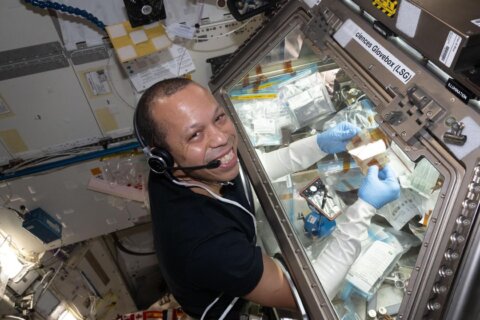



He doesn’t need a kidney donation just yet, but a Damascus High School teacher who might need one soon is trying to raise awareness about the Share Your Spare campaign.
“A live kidney donor gives the recipient a lot more years than a cadaver [donor],” Robert Dickie said.
Even for cadaver kidneys there are multiyear waiting lists. Once the filtration rate of Dickie’s kidneys rate drops below a certain rate, if there is no donor, he’ll have to do dialysis which would endanger his career.
“It’s about every other day, it is about four hours and your liquid intake is restricted to a 16-ounce bottle of water and you are just pooped, tired when you’re done with it,” Dickie said. “For the most part you have to quit work and go on Medicare and I’d rather not do that. I’ve still got more to give to this community.”
Dickie is in his 20th year at Damascus High. He teaches what he calls, “classes kids like to take,” upper level electives like AP psychology and sociology, in addition to tenth grade government.
“I get to teach people I like about subjects I like — and I get paid for it. So, that’s just awesome,” he said with a chuckle.
In anticipation of when Dickie might need help, several donor candidates have come forward to be tested. It’s an act he calls above and beyond.
“It’s not like I’m asking you to borrow $10, I’m asking you — can I have a piece of your body to stick in me so I can have a better life and that’s … that’s hard to ask and hard to give.”
You don’t need two kidneys to lead a normal, healthy life; some people are even born with only one kidney.
An organ recipient’s insurance pays for the procedure. Donors can receive $1,500 per week in wage reimbursement.
Most donors spend one night in the hospital, according to Dr. Jennifer E. Verbesey, the director of the Living Donor Kidney Transplant program at MedStar Georgetown Transplant Institute. Donors feel a little pain and bloating for a few days, she said, but after one week they’re feeling much better and after two weeks almost back to normal. But donors should plan to stay out of work for three to four weeks if they can, because they’ll feel tired for a while.
“After surgery you can walk, you can jog, you can do a lot of things; we just ask you don’t do any lifting using your abdominal muscles for a few weeks,” Verbesey said.
You can learn more about being a live kidney donor from the National Kidney Foundation website.








